What is Existentialism? Part 2 - The Short History of Existentialism: I - Early Pre-existentialism
The Dialectics of Liberation: Anarchism, Existentialism, and Decentralism
What is Existentialism? Part 2 - The Short History of Existentialism: I - Early Pre-existentialism
"Autonomy is something that is gained by the exercise of our will" - charlie777pt
1- Introduction
In the last post, we made a free introduction to Existentialism, and now it's the part of its History, that normally is boring and demands a lot of attention to reading.
I will try to put some personal reflections in the next posts about existentialism, to break the monotony of the facts.
Every author I have read is a guest in the house of my mind, and it took many years to understand how these travelers of the edge of the personal spirit, have influenced my actual way of Being, they were enlightening teachers of my experience and their immortality lay always in the framework of my decisions, the actions of my life and my relations to others.
The next posts are dedicated to a lot of authors, that made the ground basis for the emergence of existentialism, and at the same time had a strong influence the dialectic of my self-liberation and the choices for the path for my life.
It has been very difficult to talk about such big influences in such a short space and time, running the risk of creating misjudgments for such synthetic explanations, by trying to put existentialism into a can of sardines.
Existentialism today has become more important than ever before because all forms of expression of individualism are unconsciously being conditioned and shaped by mass media, that are undeniable forms of suppression and oppression, inducing total conformism and ideological stagnation.
Nietzshe said that "Got ist Tot" (God is Dead) and its time to proclaim that "Main Stream social Media ist Tot"- charlie777pt
Existentialism stresses that we must take an active role in your existence to change our Essence, by understanding that materiality rips off humanity from open individuals contact because Matter is inconsistent with a Free Spirit.
"Action alters nothing and opposes nothing. It is the pure form of a transition from a state of not being seen to one of being seen, and the content which is brought out into the daylight and displayed is nothing else but what this action already is in itself." - Hegel
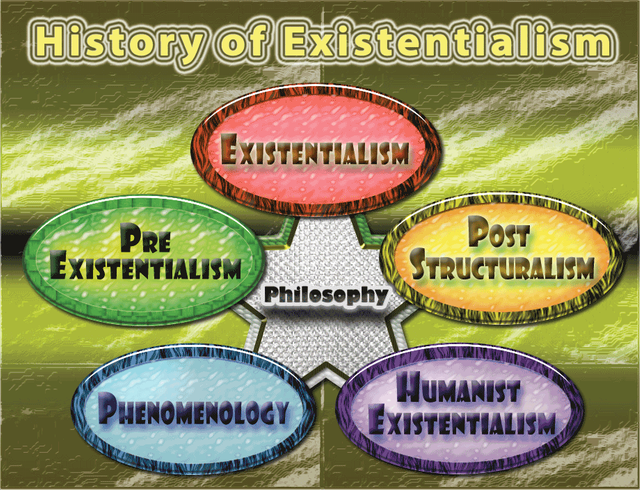
In this picture we see the topics of the next posts, about the History of Existentialism, dedicated to showing all the framework influences and convergences of existentialism starting to talk about the pre-existential freedom philosophers, followed by the phenomenologists, some posts dedicated to existentialism, and later talk about the Humanism perspective to finish talking in post-structuralism.
2 - Early Pre-existentialist Philosophers and Writers
A lot of authors have contributed for philosophy to deviate it from reasoning in the analysis of human nature in the search for the truth.
I'm going to mention some of the notated pre-existentialists inspirers of the movement, can be traced by references to a lot of authors and philosophers like:
| Description | Photo |
|
Augustine of Hippo aka St. Augustine a theologian that lived from 354 to 430 DC, influenced the shaping of Western Christianity and philosophy.
|
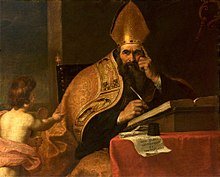 |
Mulla Sadra aka Yahya al-Qawami al-Shirazi (1571–1636), was an Islamic precursor of Illuminationist that he named "Transcendent Theosophy" For him there is no Reality, except Existence, and said we can't capture our Essence, except fragmented visions that are of modes of existence as an objective reality, that can't be conceptualized in the mind. |
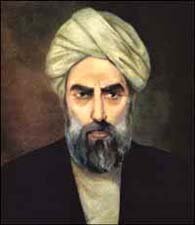 |
Giacomo Leopardi a poet, writer, philologist and philosopher of pessimism, with radical and defying ideas for the early 19th century, about the human condition and life. Some authors refer the to his sad life and health problems he had since childhood had influenced his pessimistic view of life
|
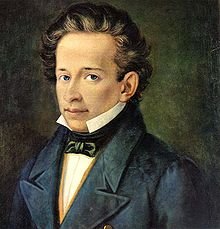 |
Blaise Pascal (1623 -1662), the mathematician, physicist, philosopher, and theologian, that had a big influence in most of the existentialist philosophical manifestations. I confess I didn´t read much of Pascal, except the views of other authors because I didn't like his Catholic Jansenist theology and the belief that we must suffer in life as a natural thing, because he had a lot of health problems all his life, but I like the following quote:
|
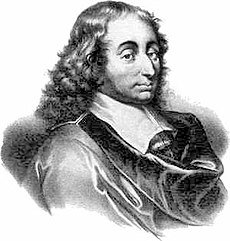 |
Henry David Thoreau (1817-862), a transcendentalist author, inspiring of the "Civil Disobedience" and later "Resistance Civil Government" inspiring the fight for freedom in face of an unfair government taking place. He invented "Tax Resistance" as an active way to fight the power of centralized structures, and the government imposition of Taxes, as a form of "Civil Disobedience."
|
 |
John Locke (1632 –1704), an English physician and philosopher of the Transcendentalism known as one of the primary influences in the emergence of the Enlightenment thinkers and the concept of Liberalism. For him we are born a " Tabula Rasa" that we have to fulfill with experience.
|
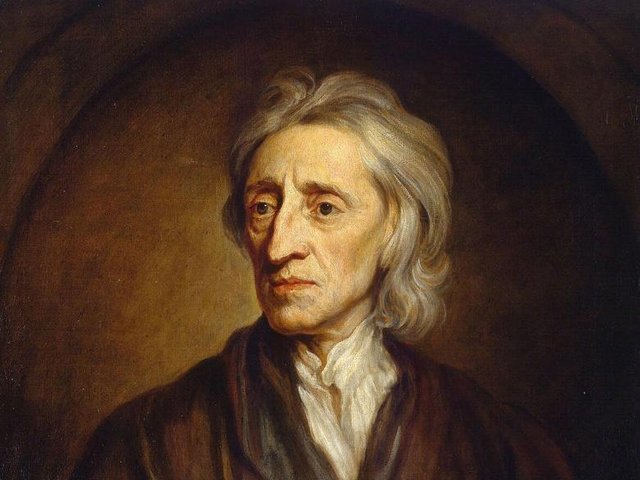 |
In the next post, we will talk about the closer and strong influences of the existentialist movement like Fyodor Dostoevsky, Friedrich Nietzsche, Søren Kierkegaard, Arthur Schopenhauer and Karl Marx.
Videos:
Locke, Berkeley, & Empiricism: Crash Course Philosophy #6
Primitivism: Henry David Thoreau (ft. Locke, Rousseau, Nietzsche, Darwin)
Image sources: Wikipedia
The Dialectics of Liberation: Anarchism, Existentialism and Decentralism.
Published Posts:
Introduction to the Dialectics of Liberation: Anarchism, Existentialism and Decentralism
I - Anarchism
- What is Anarchism?
- The History of Anarchism
- Part 1 - Pre-Anarchy - Social Revolution
- Anarchy: Revolution Against The State
- Anarchy Today
- Index and Conclusions of part 1 - Anarchy
II - Existentialism
- What is Existentialism ?
- Part 1 - Unplugged Introduction to Existentialism
- Part 2 - The Short History of Existentialism: I - Early Pre-existentialism - This post
Next posts on the Series:
II - Existentialism(Cont.)
- What is Existentialism ? (Cont.)
- Part 2 - The Short History of Existentialism: II - Pre-Existentialists
- Part 2 - The Short History of Existentialism: III - Phenomenology
- Part 2 - The Short History of Existentialism: IV - Humanist Existentialists
- Part 2 - The Short History of Existentialism: V - Post -Structuralism
- Part 3 - The Philosophy of Existentialism: I - The Meaning of Nonsense
- Part 4 - The Fear of Freedom of Erich Fromm
- The "Existentialists"
- Part 1 - The Players and the Times
- Part 2 - Jean Paul Sartre - the Man of The 20th Century
- Humanism and Existentialism
- Existentialism and Anarchism
- The Future : Posthumanism, transhumanism and inhumanism
III - Decentralism
- What is Decentralism?
- The Philosophy of Decentralism
- Blockchain and Decentralization
- Anarchism, Existentialism, and Decentralism
IV - Dialectic for Self-Liberation
- The Dialectics of Liberation Congress
- Psychedelics, Libertarian and artistical movements
- Psychoanalysis and Existentialism
- The Anti-psychiatry movement
I write about existentialism every day and feel it to mean the art of being alive in the moment, but I could be wrong
A very nice comment about Existentialism and it could apply to anarchism or decentralism.
We could say that the fight to be alive is an art.
Thanks